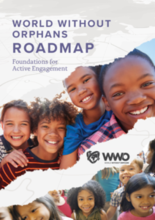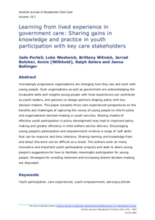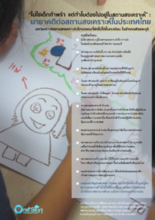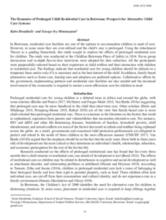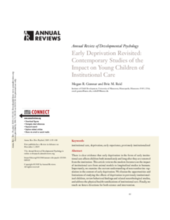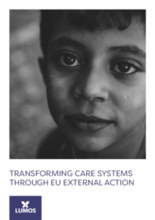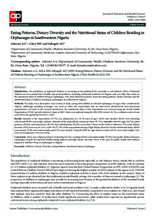Displaying 251 - 260 of 771
In this paper, the authors advance a framework for examining the nature and consequences of neglect, which they posit can be represented as variations along a continuum from severe psychosocial neglect to environmental enrichment.
World Without Orphans Roadmap: Foundations for Active Engagement is a result of broadscale collaboration
among global, regional, and national leaders across many faith communities. It is informed by experts
from global organizations that lead the way in identifying best practices for caring for vulnerable families
and children.
This paper presents three care experienced perspectives on the benefits and challenges of capturing the voices of young people to inform policy and organisational decision-making in youth services.
This summary report presents key findings and recommendations from an analysis of unregistered, private children's homes in Thailand's Sangkhlaburi District.
Using the Attachment Theory as a guiding framework, this study sought to explore the effects of prolonged residential care for children.
This field guide, produced by Apolitical in partnership with Hope and Homes for Children, is designed to help public servants understand the issue of children in care. It covers the following learning objectives: (1) Understand why experts say institutional care is harmful to children, (2) Learn about deinstitutionalisation and new approaches to replace institutions and prevent family separation, and (3) Learn about interventions that have improved outcomes for kids who do experience care.
This article reviews the modern literature on the impact of institutional care from animal models to longitudinal studies in humans.
This report from Lumos sets out the evidence about the harm that institutions can cause and presents the case for prioritising family and community-based alternatives to institutional care.
This study aimed to assess the eating patterns, dietary diversity and the nutritional status of children residing in orphanages in southwestern Nigeria.
A cross-sectional comparative descriptive study was conducted among 300 children of age 6-12 years from a pediatric outpatient department of a selected hospital and 300 children from selected orphanages in Kolkata to compare the prevalence of behavioral disorders in children under parental care and out of parental care using Strengths and Difficulties Questionnaire (SDQ).

